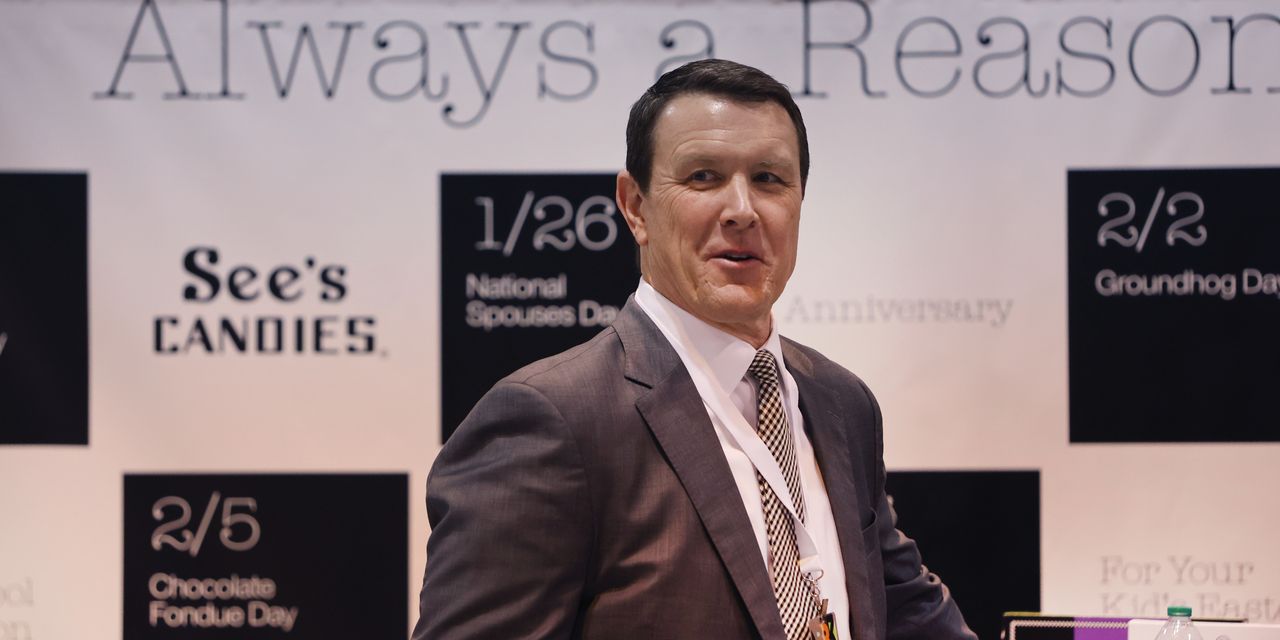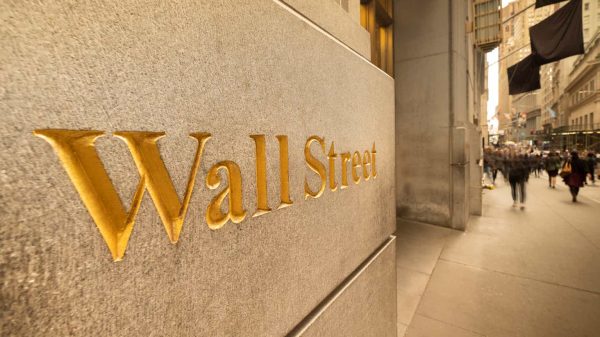OMAHA, Neb.—Warren Buffett’s
Berkshire Hathaway
conglomerate includes dozens of wholly owned companies acquired over the past six decades, plus a sizable equity portfolio. From the smallest subsidiary to leading businesses like Geico, the BNSF railway, or
Berkshire Hathaway
energy, all exhibit Buffett’s preferred investment characteristics.
Those include durable competitive advantages—what Buffett calls a “moat”—consistent profits, the ability to grow at attractive rates, and quality management teams. He likes to buy businesses that can thrive forever with minimal input and ongoing investment.
See’s Candies was one of Buffett’s earlier acquisitions at Berkshire (ticker: BRK.A, BRK.B), in 1972, for a purchase price of $25 million. In Buffett’s 2014 shareholder letter, he said that See’s had generated $1.9 billion in pre-tax earnings for Berkshire since then, for an added investment of only $40 million.
It continues to be a capital-light grower, says CEO Pat Egan at the See’s exhibit on the floor of Omaha, Neb.’s CHI Health Center, the venue for the 2023 Berkshire Hathaway annual shareholders’ meeting. Business was brisk—Egan said See’s was on track to surpass the 11 tons of chocolates and peanut brittle sold at the 2022 confab.
See’s fulfills another investing maxim that Buffett espouses: Buy businesses that you know and understand. (“What else but candy from See’s could account for Charlie and me making it to 99 and 92?” he wrote in his 2022 letter.) For Egan, it all comes back to the brand and See’s history, which stretches back to its founding in 1921.
“We make fantastic candy, we stay true to our customers’ expectations,” Egan tells Barron’s. “We still use Mary [See’s] recipes for peanut brittle, for toffee, for walnut pieces, and others—and we never add preservatives.”
See’s is vertically integrated, from its 253 bricks-and-mortar stocks to the company’s factories producing 92% of the product it sells. Overall costs are up some 30% over the past year, with input prices for sugar and milk more than doubling, Egan says. That’s a painful price increase, but See’s strong brand leaves ample profit margin to absorb some higher expenses—while Berkshire’s long-term focus means See’s doesn’t need to worry about this or that quarter’s result.
“It’s obviously better if you own See’s Candies than if you own a no-name candy company,” Buffett said at the shareholders’ meeting on Saturday, noting its pricing power. “When people buy it as a gift…If you say ‘I got a wonderful deal on this candy,’ it kills the moment.”
That focus on the brand is evident at other Berkshire subsidiaries. Brooks Sports, which makes and sells running shoes and related apparel, is focused on the running community and being the answer from “head to toe in running,” CEO Jim Weber tells Barron’s. Supply chain issues during the Covid-19 pandemic kept the company from meeting as much customer demand as possible, with things finally returning to normal in recent months. Despite it all, sales hit a record high around $1.3 billion in 2022, and should grow in the high-single digits in 2023, per Weber.
Brooks sells via bricks-and-mortar and online retail partners and from its own direct-to-consumer website. It’s another capital-light business with a strong brand, steady growth, and consistent profits. Brooks is the best-selling running shoe in the premium segment of the market.
“We just work on managing our business as well as we can execute it, and we know Berkshire will be there standing behind us,” Weber says.
Ice cream and burger chain Dairy Queen has been under the Berkshire umbrella since 1998, when Buffett acquired the business for around $585 million. It has since grown to a record $5.7 billion in sales in 2022 and more than 7,000 locations in over 20 countries.
The company operates under a franchise model, collecting a percentage of gross sales from its restaurants. Some 300 new Dairy Queen restaurants opened last year, and CEO Troy Bader says the company is on track to add more than that in 2023—with the largest share opening in China.
Berkshire’s backing helped DQ get through several tumultuous years for the restaurant business during and after the Covid-19 pandemic, Bader says, as the company was forced to close locations, then doubled down on drive-thrus, then dealt with shortages of labor and supply chain issues as the world reopened.
More recently, franchisees have been lifting their prices to pass along higher costs of ingredients and labor—average prices at DQ are up 11% from two years ago, Bader says. The franchise model once again lends itself to a capital-light business that can grow on its own by reinvesting profits.
All three CEOs are confident that Berkshire will remain in good hands once Buffett, 92, passes the reins to Greg Abel, the company’s vice chairman in charge of non-insurance operations.
“He is a busy man, yet he’s always available when I’ve needed something,” Bader tells Barron’s. “We’ve had great conversations and I continue to learn a lot from him.”
Abel comes to Brooks headquarters in Seattle, Wash., around twice a year to talk strategy and plans for the business. He tried on the entire Brooks lineup of shoes on his last visit, Weber says, in addition to shoes from its competitors—something Buffett never did. “The main difference is that Greg is a faster runner,” Weber says.
See’s Egan adds another contrast: Buffet prefers the peanut brittle, while Abel goes for the pecan buds. “As leaders, you can’t ask for more,” he says.
Write to Nicholas Jasinski at [email protected]
Read the full article here













